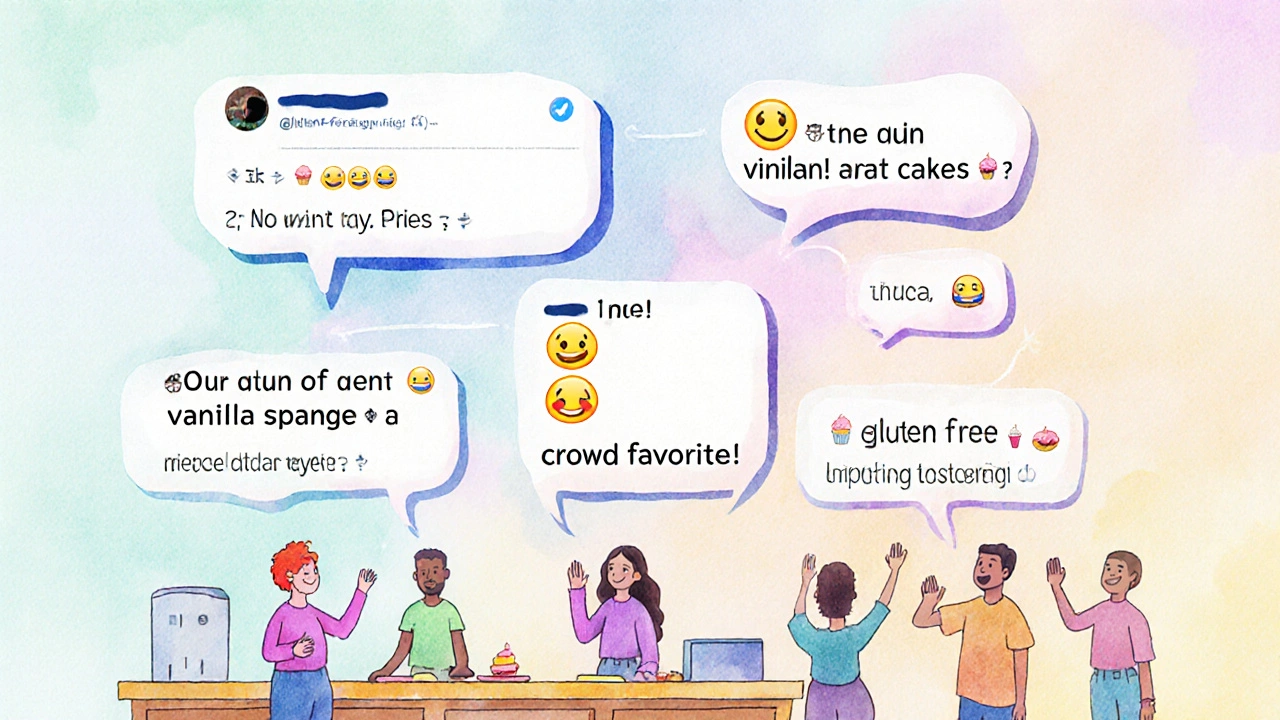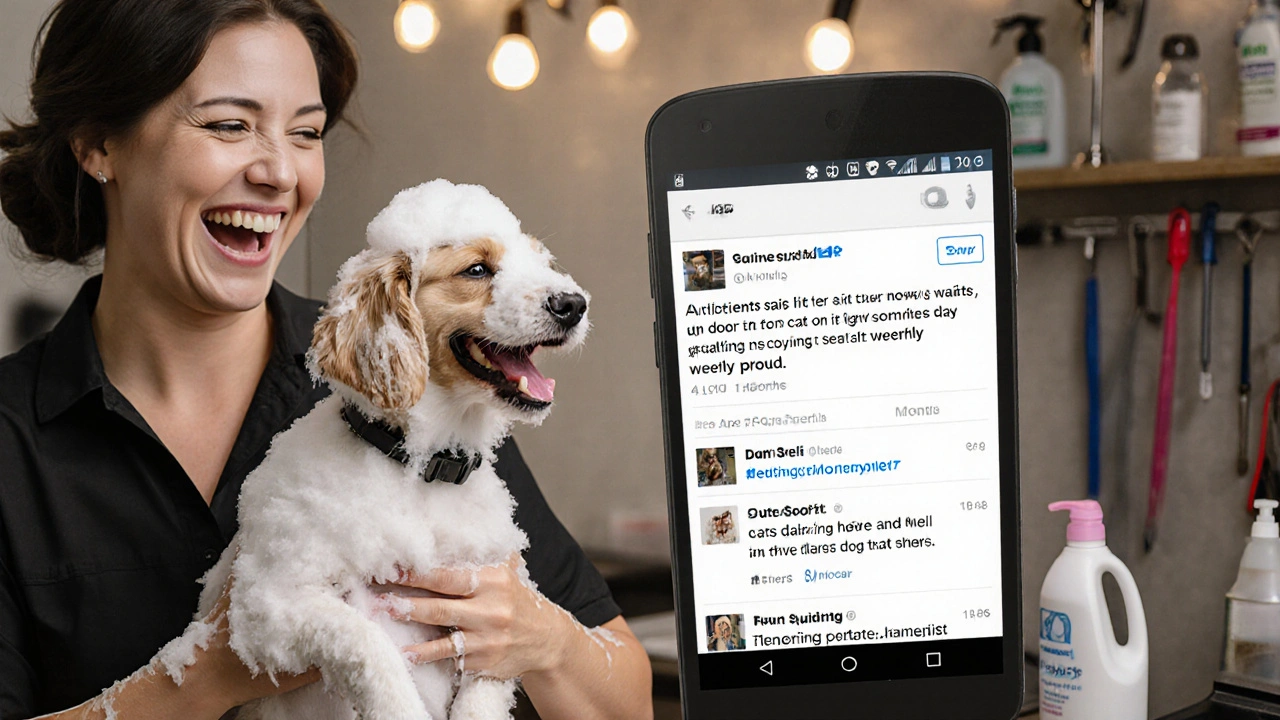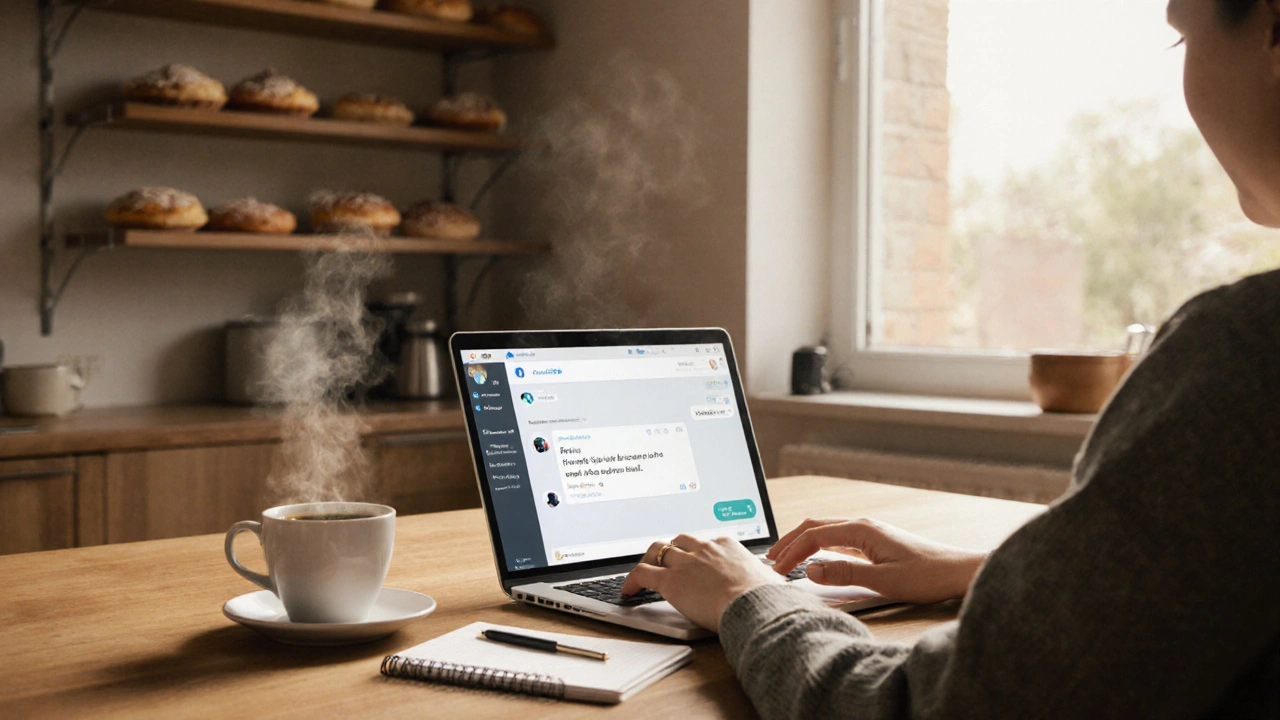Facebook Reply Generator
Your AI assistant for authentic Facebook engagement. This tool helps you create personalized replies that sound human—without spending hours typing the same response over and over.
Posting on Facebook isn’t just about sharing updates anymore. It’s about keeping people engaged, responding quickly, and showing up consistently-even when you’re tired, busy, or just out of ideas. If you’re managing a Facebook page for your business, community group, or personal brand, you know how hard it is to keep the conversation going. That’s where ChatGPT comes in-not as a replacement for you, but as your quiet, always-on assistant.
ChatGPT Isn’t Just for Writing Emails
Most people think of ChatGPT as a tool for drafting emails or writing essays. But on Facebook, it’s way more useful. You can use it to write comments that sound human, craft replies to common questions, generate post ideas in seconds, and even help you sound more authentic when you’re stretched thin.
Take a small bakery in Bunbury, for example. Their Facebook page gets 20-30 comments a day. Questions like “Do you do gluten-free cakes?” or “Can I pick up my order at 5 PM?” come up over and over. Instead of typing the same answer 15 times, they use ChatGPT to generate a friendly, branded reply. They tweak it slightly each time-add a name, change a word-so it doesn’t feel robotic. Their response rate jumped from 60% to 95% in two weeks.
How to Use ChatGPT to Write Better Facebook Comments
Comments are where relationships happen on Facebook. A quick, thoughtful reply can turn a casual follower into a loyal customer. But replying to dozens of comments every day? It’s exhausting.
Here’s how to make it easier:
- Copy a common comment you get often (like “Where are you located?” or “How much is delivery?”)
- Paste it into ChatGPT and say: “Write a friendly, short reply to this comment for a local bakery. Keep it warm and casual. Use emojis if it fits.”
- ChatGPT gives you 3-5 options. Pick the one that sounds most like you.
- Save it as a template in your phone’s notes app or a tool like Notion.
- Next time you see the same question, paste, tweak, and post.
You don’t need to be a writer. You just need to be consistent. And ChatGPT helps you do that without burning out.
Stop Scrolling for Post Ideas
What do you post on Facebook when you’re out of ideas? You scroll through other pages. You copy what’s trending. You end up posting stuff that doesn’t feel like yours.
Try this instead: Open ChatGPT and type:
“Give me 10 Facebook post ideas for a small pet grooming business in Perth. Focus on real customer moments, not ads. Use casual language.”
Here’s what it might return:
- “Our pup, Max, came in looking like a snowman. Left looking like a prince. 🐶❄️👑”
- “Why do dogs hate baths but love being blow-dried? We’ve got the answer (and the treats).”
- “One client said her cat now waits by the door on grooming day. We’re weirdly proud.”
These aren’t salesy. They’re human. And they get shares.
Use ChatGPT to brainstorm. Then add your own voice. A photo of your team laughing after a messy session. A quick video of a dog shaking off after a bath. That’s the stuff people remember.

Turn Customer Questions Into Content
Every question someone asks in your comments is a hidden content idea. Most people ignore them. Smart ones turn them into posts.
Example: You get asked, “Can I bring my own shampoo for my dog?”
Instead of just replying, turn it into a post:
“We get this question a lot: ‘Can I bring my own shampoo?’
Short answer: Yes-but only if it’s pet-safe. We’ve seen some human shampoos make dogs itchy for weeks. We keep a list of safe brands on our website. DM us if you’re unsure.”
Then add a photo of your shelf with labeled bottles.
ChatGPT can help you turn that one comment into a post in under a minute. Just say: “Turn this customer question into a short, friendly Facebook post that answers it and adds value.”
Automate Without Losing Your Voice
Some people try to automate everything. They let ChatGPT reply to every comment. Bad idea.
Facebook’s algorithm rewards real interaction. If every reply sounds the same, people notice. And they stop engaging.
Here’s the balance:
- Use ChatGPT to draft replies to common questions.
- Always read them before posting.
- Change one word. Add a name. Swap an emoji. Make it feel like you wrote it.
- For emotional or complex replies (like someone upset about a delay), always write it yourself.
Think of ChatGPT like a first draft. You’re the editor.
What Not to Do
ChatGPT isn’t magic. It doesn’t know your brand’s tone unless you tell it.
Here are three mistakes people make:
- Using the same reply too often. If you copy-paste the exact same response five times a day, people will call you out. Even if it’s perfect, it feels lazy.
- Letting it write your entire post. ChatGPT can suggest ideas, but your story is unique. Don’t outsource your personality.
- Ignoring the tone. If your page is funny, don’t let ChatGPT write a formal reply. Always add: “Write this like I’m a chill owner who loves dogs and hates Mondays.”

Real Results From Real Pages
In July 2025, a Perth-based yoga studio with 2,300 followers started using ChatGPT to help with Facebook replies and post ideas. They didn’t change their content strategy-just how they created it.
Here’s what changed in 60 days:
- Comments replied to: 42% → 89%
- Post engagement rate (likes + comments): 4.1% → 7.8%
- Time spent managing Facebook each day: 90 minutes → 35 minutes
They didn’t spend a cent on ads. They just got smarter about how they showed up.
Start Small. Just One Thing.
You don’t need to overhaul your whole Facebook strategy today.
Start with one thing:
- Take your top 3 most common comments.
- Ask ChatGPT to write a friendly reply for each.
- Use them this week.
That’s it. No fancy tools. No expensive software. Just a smarter way to use your time.
Facebook isn’t about posting the most. It’s about connecting the right way. ChatGPT helps you do that-without draining your energy.
Can ChatGPT reply to my Facebook comments automatically?
No, ChatGPT can’t auto-reply on Facebook. You have to copy, paste, and post manually. But you can use it to generate replies ahead of time, so you’re not typing from scratch every time. This saves time while keeping your replies personal.
Is it okay to use ChatGPT for business Facebook pages?
Yes, as long as you edit the output. Facebook doesn’t ban AI use-it bans spam and inauthentic behavior. If your replies sound robotic or repetitive, people will notice. But if you use ChatGPT to help you respond faster while keeping your tone, it’s a smart tool, not a shortcut.
What if ChatGPT gives me a wrong answer for a customer question?
Always double-check. ChatGPT doesn’t know your policies, hours, or products unless you tell it. If a customer asks about your refund policy, don’t rely on ChatGPT to guess it. Type in your exact policy and ask: “Rewrite this in a friendly way for a Facebook comment.” That way, you’re using AI to polish your own words-not replace them.
How often should I use ChatGPT for Facebook?
Use it when you’re stuck, tired, or short on time. You don’t need to use it every day. Even once a week to brainstorm post ideas or draft replies can make a big difference. The goal isn’t to rely on it-it’s to use it as a tool so you can show up more consistently without burning out.
Does using ChatGPT hurt my page’s reach on Facebook?
No, not if you use it right. Facebook’s algorithm rewards engagement, not how the content was made. If your replies spark conversations, your posts will reach more people. ChatGPT helps you reply faster and more often-which boosts engagement. Just make sure your tone stays real. People can tell when a message feels fake.
Next Steps
Try this today: Open your Facebook page. Scroll to your comments. Find one question you answer over and over. Copy it. Paste it into ChatGPT. Ask for a friendly reply. Edit it. Post it.
That’s one less thing you have to think about tomorrow. And the next day, you’ll have more energy to focus on what really matters-your community.


I'm Amelia Kensington, a digital marketer located in beautiful Perth, Australia. My love for market research and consumer behavior led me into the fascinating world of marketing. Currently, I lead a team in developing clever and creative marketing strategies for our diverse portfolio of clients. I also love to share my knowledge and passion, so I write about online marketing trends and tips in my free time. One more thing, I don’t just work hard, but play hard too. Adventure and mystery-filled novels keep my weekends occupied and hiking helps keep my spirit free.